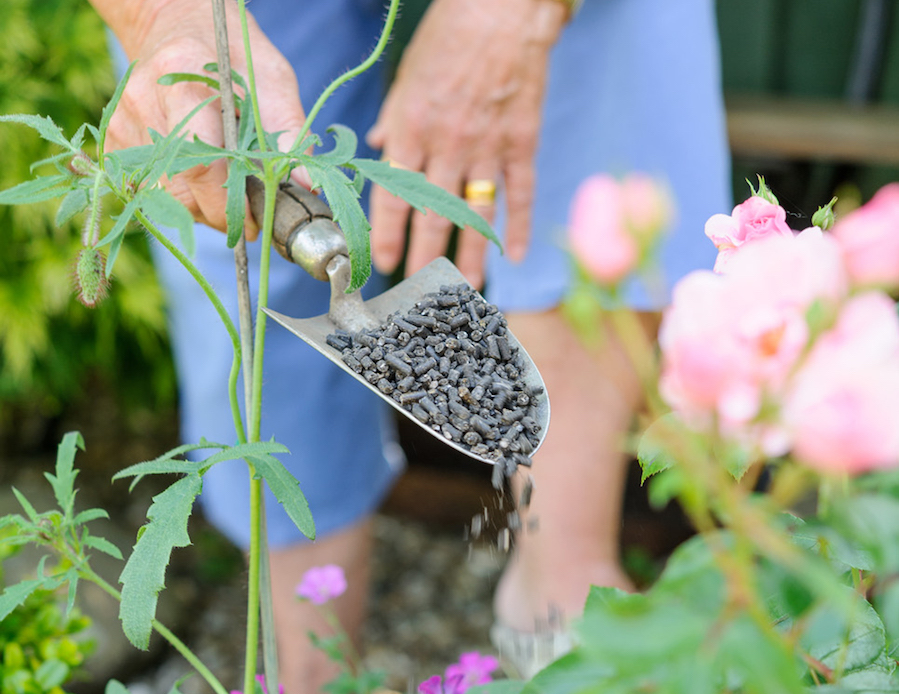What is biochar and why should we all be using it in our gardens?
Biochar is thousands of years old (first discovered by ancient Amazonian tribes). It’s loved by many of the UK’s gardening experts, beneficial to the environment, and used by professional growers, tree-care specialists and groundskeepers worldwide, to get incredible results – yet many of us haven’t even heard of it.
What exactly is it?
“Biochar is a very pure, high-carbon type of charcoal that gives a brilliant boost to the health of your soil (and therefore your plants),” says Simon Manley, CEO of Carbon Gold, who make biochar products. “It retains water and nutrients in the soil and improves its structure, giving your plants exactly what they need to flourish – whether you’re after beautiful blooms, luscious lawns, thriving trees, or an abundance of fruit and veg.”
It’s made using a process called pyrolysis, he says, “where plant matter is baked at a high temperature in a low-oxygen environment”. This means that, unlike the conventional burning of wood or plant matter, the carbon stored up through photosynthesis is not released back into the atmosphere, so it’s great for the environment, as well as your garden.
Manley reveals biochar fans include gardening experts Monty Don, James Wong and Bunny Guinness, and says it’s used by the UK tomato growers who supply Marks & Spencer, Morrisons and Asda, as well as the teams at Kew Royal Botanic Gardens, Royal Ascot, and golf courses and Premier League football clubs across the UK.
So how does biochar work?
It holds water: “Because of the way biochar is made, it’s extremely porous, and acts a bit like a sponge in the soil, helping to retain water,” says Manley. “This means plants need watering less and don’t get dehydrated as easily – great for when you’re on holiday, for example.”
It improves aeration: When dug into the soil, the porous structure allows for better aeration of soil, states Manley, which is essential to healthy plant growth. Roots need oxygen for a plant to flourish.
It retains nutrients in the soil: Biochar attracts and holds onto nutrients in the soil, improving soil fertility and growth of plants.
“The miniscule nooks and crannies you’ll find on pieces of biochar make the perfect home for billions of soil-beneficial microbes, which are important for healthy plant growth, meaning they won’t be easily washed away by rain or watering,” notes Manley.
And because biochar is so high in carbon, it doesn’t break down or decompose, so you only have to apply it once to make a permanent improvement to your soil. What’s more, due to the fact it’s almost 100% carbon, every tonne of it in the soil equates to nearly three tonnes of CO2 sequestered, or locked away, from the atmosphere.
You can make your own biochar, though Manley stresses the process of purifying it requires extremely high temperatures, making it quite dangerous.
How to use biochar
Simon Manley offers 5 top tips…
1. Improve the survival rates of your plants by using biochar-enriched composts when potting on, to help protect the plant from shock.
2. Revive flagging older plants by digging it deep into the soil around the roots, being careful not to damage them.
3. Use it as a top-dressing and it has the added advantage of keeping away slugs and snails, without the need for potentially harmful chemicals.
4. Dip root balls of shrubs and trees in it before planting, making sure you don’t stamp or pat the ground around the tree down too much, as this will affect aeration.
5. Just use it once! You only need one application to make a permanent difference. Ancient Amazonian civilisations made their own version of biochar thousands of years ago, and the soil there is still incredibly fertile today.
The Press Association
Latest posts by The Press Association (see all)
- The best ways to boost your immune system as cold temperatures hit - January 5, 2025
- The Osmonds star and ‘beloved husband and father’ Wayne Osmond dies aged 73 - January 2, 2025
- What screenings are available on the NHS to detect cancer early? - January 2, 2025
- Help your grandchildren make the most of Big Schools’ Birdwatch - January 1, 2025
- Veteran radio star Johnnie Walker dies aged 79 - December 31, 2024




















